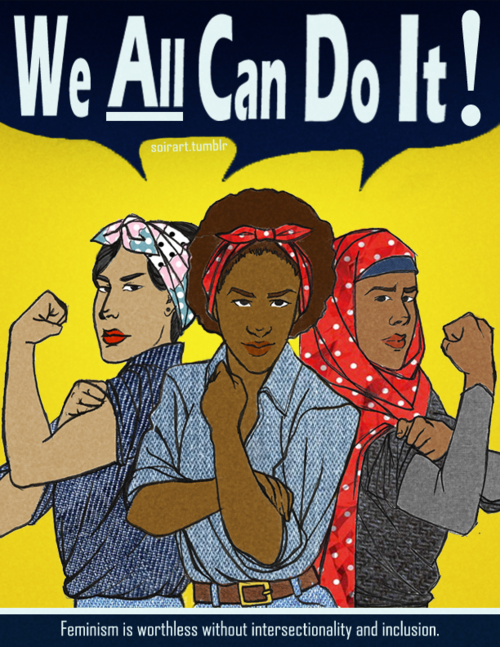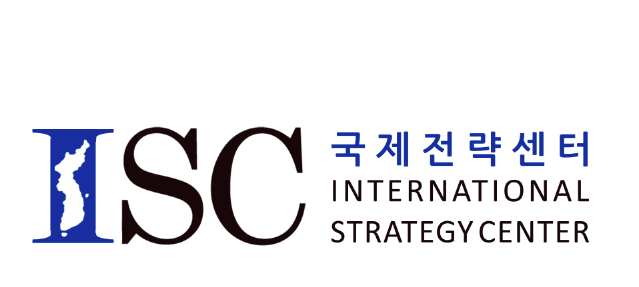Putting the pieces together with the feminist study group
by Julia Nikol (International Strategy Center, Operations Committee)

(Source: fineartamerica.com)
My feminism is American-born and raised. Courses in women’s history, progressive online communities, and contextualizing my own lived experiences shaped the way I “do” feminism. I found consonance with those other feminists around me whose worldview was shaped by similar forces - liberal arts educated, online forum-scrolling, twenty-something feminists. Feminist friends I had a plenty, but what was missing for me was a historical and political context. Feminism is, after all, a radical political movement. What does feminism look like outside of the United States? How could I learn more about the sisters before me who fought for the rights I now have? And how could I connect feminism’s history with the action and advocacy I see in my world today?
It was the International Strategy Center’s general secretary who invited me to participate in the feminist study group. I happily agreed to join in hopes of strengthening my bond with the ISC. Working on the operations committee already, I was excited to work more closely and in a different context within the community. To be honest, deepening my understanding of feminism was an afterthought. Surely, I thought, I was well-versed in feminist theory. I was surprised to find just how much the group challenged me to re-contextualize and revise my own understanding of the feminist movement.
Joining the group has allowed me to explore feminism more deeply; I’ve been introduced to feminist literature, activists, and ideologies that I would have been less likely to seek out on my own. Portions of Carol Tavris’ The Mismeasure of Woman set the foundation for our studies. We explored the ways, both overt and more hidden, that women are trained to live life as subordinates and even to internalize and self-enforce this subjugation. Cultural forces that kept this system going were also discussed - pop culture, history, and even science consistently rationalize and justify patriarchy. Many of these societal truths were ones that I spent my adolescent years slowly becoming aware of. Seeing them laid out before me so eloquently by a scholar was a stark reminder that I wasn’t alone in my realizations or my feminist “identity” - misogyny is a systemic reality.
The backgrounds of feminist knowledge vary amongst the members, and I appreciate the spirit of patience, inclusivity, and understanding that can be felt during our meetings. Some of us have had a formal education in the field of women’s studies, some have spent long hours reading feminist texts, and some have been introduced to feminist ideology here and there but are still deciding where to place themselves within it. Regardless, everyone’s there to learn. Instead of drawing lines between our diverse vantage points, our group is eager to listen and unafraid to ask questions or bring up contentious ideas. Watching Kimberly Peirce’s Boys Don’t Cry, about a trans man navigating his newfound identity and the dangers that come with challenging society’s strict expectations of gender sparked some challenging conversations about the experience of being female or male and the meaning of gender itself. I felt comfortable bringing up these topics, which often find themselves central to the controversy between different branches of feminism. If only our paid time at the study cafe hadn’t run out, we could’ve gone on unpacking these issues for quite a while.
During our last meeting, we started by spending some time at the Women’s March on Seoul. Inspired by this enormous presentation of global solidarity, we used our newfound energy to trudge through the snowy streets of Gangnam and meet with Holic, the director of the Association for Sexual Minorities in Korea. She spoke of the association’s efforts to unbox society’s thinking about LGBT issues and partnering with global initiatives such as Pride House International, which will work to offer a safe space at the Pyeongchang Winter Olympics in 2018. I was particularly impressed with the organization’s service at the local level. After noticing a large crowd of young lesbians regularly meeting up at a nearby park, older lesbians took steps towards mentoring those youths who did not have accepting adult figures to look up to, eventually creating a center for counseling young women. This woman-centered grassroots organizing is inspiring, particularly in a place where sexual minorities struggle to be accepted by mainstream society. Emboldened by the escalating shouts of the anti-LGBT conservatives these days, director Holic and International Relations Manager Candy simultaneously agreed that, without any doubt, the LGBT movement is growing faster than ever.
There’s no doubt that my insight into feminism has been deeply enriched by the ISC’s feminist study group. The feeling of solidarity and openness to dialogue the ISC sets forth is not lost on this study group, where I feel happy and unafraid to share with and learn from the other members. Without this group and its multilingual, multicultural, multifaceted members, I wouldn’t have the opportunity to hear from feminists who don’t speak English, critically examine feminism from the point of view of various cultures, or so thoroughly reexamine my own points of view. Rethinking what I thought I knew about feminism has revived my thirst for learning, and I look forward to scrutinizing more texts, and meeting more feminists. Jezebel comments sections and bar-side chats aside, it’s about time I root my ideas about feminism in academic, historical, and cultural realities. This study group is helping me do just that.
written by Julia Nikol (International Strategy Center, Operations Committee)
